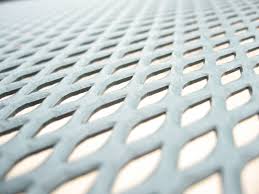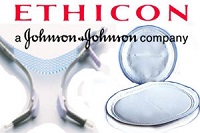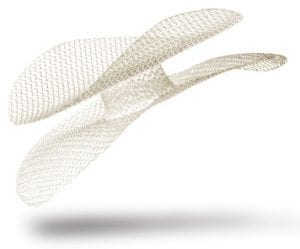 At least ten deaths have been linked with hernia repair Physiomesh™, according to U.S. FDA reports. Mesh News Desk worked with Device Events to bring these deaths to light.
At least ten deaths have been linked with hernia repair Physiomesh™, according to U.S. FDA reports. Mesh News Desk worked with Device Events to bring these deaths to light.Thousands of women with transvaginal mesh claims have known for years of the dangers of polypropylene (plastic) mesh implanted in the human body. Now, as many of the women’s pelvic mesh cases are settling, several trial lawyers are taking on hernia mesh lawsuits.
One Million Hernia Repairs
More than a million hernia repairs are performed yearly. Many recipients of the plastic mesh used for hernia repairs are now reporting the same problems that transvaginal mesh patients did. Hernia mesh victims report chronic pain, infection, mesh shrinkage, mesh migration, organ perforation, and more.
Medical device injury lawyers are focusing primarily on coated hernia meshes. They are preparing cases for future litigation, specifically Atrium C-Qur and Physiomesh™ made by Ethicon, a division of Johnson & Johnson (JNJ). Ethicon voluntarily recalled Physiomesh™ from the market in May 2016.
 The Urgent: Field Safety Notice, notes two unpublished studies found that Physiomnesh™ had higher failure rates for laparoscopic ventral hernia surgeries than other meshes used in a German and Danish Medical Registry.
The Urgent: Field Safety Notice, notes two unpublished studies found that Physiomnesh™ had higher failure rates for laparoscopic ventral hernia surgeries than other meshes used in a German and Danish Medical Registry.The voluntary product recall states unpublished data found, “The recurrence/reoperation rates (respectively) after laparoscopic ventral hernia repair using Ethicon Physiomesh™ Composite Mesh were higher than the average rates of comparative the comparator set of meshes among patients in these registries.”
Physiomesh Cleared by FDA, Not Approved
Some 300,000 patients have likely been implanted with Physiomesh™ since it was cleared by the FDA for sale via the 510 (k) process in 2010. FDA Clearance does not mean FDA Approval, which is why the makers of these products can still be held accountable in the civil court system.
The Field Safety Notice notes nothing about hernia mesh deaths.
Device Events: Ten Deaths Linked with Physiomesh™
‘Device Events’ is an investigative tool that uses proprietary algorithms designed by developer Madris Tomes, a former FDA investigator. Ms. Tomes now investigates under-reported or mis-reported entries to the FDA complication databases, in order to identify patterns of injury or death. In all, Ms. Tomes shared (with Mesh Medical Device News Desk) seven (7) injury and ten (10) death reports linked with Physiomesh™ hernia mesh.
Dirty Data skews True Picture
 “While the FDA requires manufacturers and hospitals to report deaths due to devices, if there is any leeway or room for interpretation, often the reports come in as injuries or malfunctions. Tens of thousands of deaths have been extremely difficult to find due to this regulatory ambiguity and dirty data. This can be the critical data point needed for mesh and countless other medical device cases.” – Madris Tomes, Device Events
“While the FDA requires manufacturers and hospitals to report deaths due to devices, if there is any leeway or room for interpretation, often the reports come in as injuries or malfunctions. Tens of thousands of deaths have been extremely difficult to find due to this regulatory ambiguity and dirty data. This can be the critical data point needed for mesh and countless other medical device cases.” – Madris Tomes, Device Events
Further exploration of deaths and injury via additional search terms (such as manufacturer and a host of search terms used to unearth findings), are available via a subscription to Device Events.
Mesh Maker Must Report Adverse Events
Hospitals, medical device makers and importers are required to file adverse event reports with the FDA. Lawyers, doctors, and patients may also file an adverse event report to the FDA. (See how here.)
An Adverse Event report means the device “may” have caused or contributed to death or serious injury, according to Isaac Chang, Ph.D, Director of the Division of Postmarket Surveillance with the FDA.
Certain malfunctions, such as a product failure, improper design, labeling and manufacturing problems, failure to meet performance specifications and use error must also be reported. Those incidents may have been a factor in a death or serious injury.
Sepsis and Infection
The ten deaths linked with Ethicon Physiomesh reported to the MAUDE database, almost always involved infection.
Sepsis is the most common word for a bacterial, fungal or viral infection of the bloodstream, according to Mayo Clinic here. Sepsis should be treated in the early stages before progressing to severe septic shock, which can be fatal, especially in an older person or one with a weakened immune system.
Sepsis’ origin can be the introduction of an invasive device or injury to the bowel, which then releases bacteria into the system.
Ten Deaths Linked With Hernia Repair Physiomesh
Organs can fail from severe sepsis, gangrene or tissue death.
Patient 8 died from sepsis after straps of the mesh were turned into the fascia violating the bowel. Bowel violation, says a report on the patient.
Patient 14 is listed as an injury report, even though it later said the “patient had a generalized infection and died” after a Physiomesh™ implant and suffering two injuries to the small intestine.
In some cases, initial injury reports are not updated when the patient expires.
Mesh breakage of Physiomesh report to MAUDE
Patient 23 is an injury report with sepsis and the “mesh breaking up” and a “hole in the mesh” necrosis, and “resection of small bowel,” yet the reporter, JNJ, says the “mesh met the finished goods criteria.” In other words, it did not test as defective.
Physiomesh™ problems have included a failure of the mesh to incorporate with the body, largely blamed on the laminated coating on the polypropylene (PP).
The Physiomesh™ is constructed of knitted filaments of extruded PP (plastic) with an additional dyed polydioxanone film marker, added for orientation purposes. The coatings were added to each side to avoid contact with tissue and organs and bowel. But with no PP exposed, the hernia mesh may not incorporate into the body, leaving it potentially floating and moving around in the patient.
Also, since less PP (plastic) was used to make Physiomesh™ “lightweight,” it is considered to be weaker than standard hernia mesh made of polypropylene.
The Physiomesh™ may tear apart as a result, according to trial attorneys pursuing these cases.
Natural Hernia Mesh Death?
Patient 20 was considered obese with chronic steroid use. Those are the factors contributing to his surgical site infection and wheezing, according to the entry. The mesh separated and did not adhere to the intestinal loops. Fasciitis and infection were observed.
A new mesh was implanted. The patient died four weeks after the Physiomesh™ was implanted. His death was attributed to bronchoaspiration and respiratory failure.
An autopsy was not ordered due to the “natural death.”
When Patient 24 presented with a 104.5 fever following his Physiomesh™ implant, as well as sepsis, he had the mesh removed. In 12 hours, the report says, “the patient got better.”
FDA Reports favor Mesh Maker
Two of the reports to the FDA seem tortured to avoid connecting the mesh to the patient’s death.
In the Patient 21 death report, which notes complications and sepsis after a mesh implant, the mesh maker reports there is “no reason to suspect the mesh malfunctioned and caused the patient death.”
Patient 16’s death, J&J reports, is “not related to mesh but to co-morbidity.” The patient had two surgeries, was bleeding from the trocar site and had necrosis of the colon.
Another death report, Patient 17, reports that he died six days post-op. The patient was enrolled in a study of patients with peritonitis to prevent incisional hernias. The patient suffered three small bowel resections during the procedure. The patient passed out in the hospital and hit his head. He died after 45 minutes of resuscitation.
Ethicon Response
Ethicon’s newer version of Physiomesh, Ethicon Physiomesh™ Open Flexible Composite Mesh Device, was approved via 510(k) October 23, 2014. It remains on the market and is not related to the withdrawal of Physiomesh.
Removing Physiomesh™ from the market does not qualify as an FDA recall, notes J&J.
A call from Mesh News Desk to J&J to respond to these reports went unanswered by deadline. Jane Akre of the Desk said that any additional comments will be added when and if they are received.
RELATED
- Ten Deaths Associated with J&J’s Physiomesh
- Physiomesh Lawsuit
- Ethicon Hernia Mesh Lawsuit
- Transvaginal Mesh Catastrophe

by Matthews & Associates




